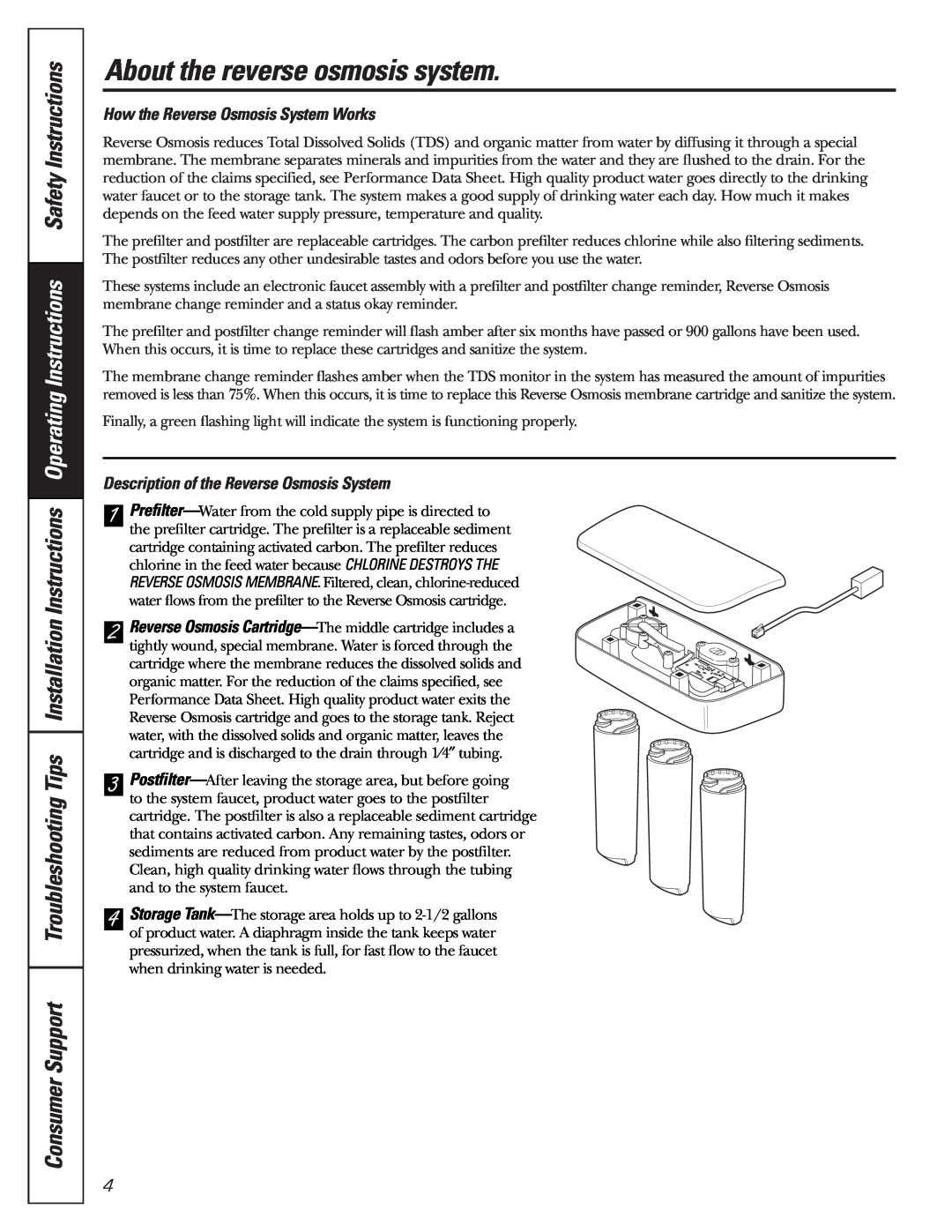
Consumer Support Troubleshooting Tips Installation Instructions Operating Instructions Safety Instructions
About the reverse osmosis system.
How the Reverse Osmosis System Works
Reverse Osmosis reduces Total Dissolved Solids (TDS) and organic matter from water by diffusing it through a special membrane. The membrane separates minerals and impurities from the water and they are flushed to the drain. For the reduction of the claims specified, see Performance Data Sheet. High quality product water goes directly to the drinking water faucet or to the storage tank. The system makes a good supply of drinking water each day. How much it makes depends on the feed water supply pressure, temperature and quality.
The prefilter and postfilter are replaceable cartridges. The carbon prefilter reduces chlorine while also filtering sediments. The postfilter reduces any other undesirable tastes and odors before you use the water.
These systems include an electronic faucet assembly with a prefilter and postfilter change reminder, Reverse Osmosis membrane change reminder and a status okay reminder.
The prefilter and postfilter change reminder will flash amber after six months have passed or 900 gallons have been used. When this occurs, it is time to replace these cartridges and sanitize the system.
The membrane change reminder flashes amber when the TDS monitor in the system has measured the amount of impurities removed is less than 75%. When this occurs, it is time to replace this Reverse Osmosis membrane cartridge and sanitize the system.
Finally, a green flashing light will indicate the system is functioning properly.
Description of the Reverse Osmosis System
1
2 Reverse Osmosis
3
to the system faucet, product water goes to the postfilter cartridge. The postfilter is also a replaceable sediment cartridge that contains activated carbon. Any remaining tastes, odors or sediments are reduced from product water by the postfilter. Clean, high quality drinking water flows through the tubing and to the system faucet.
4 Storage
4
